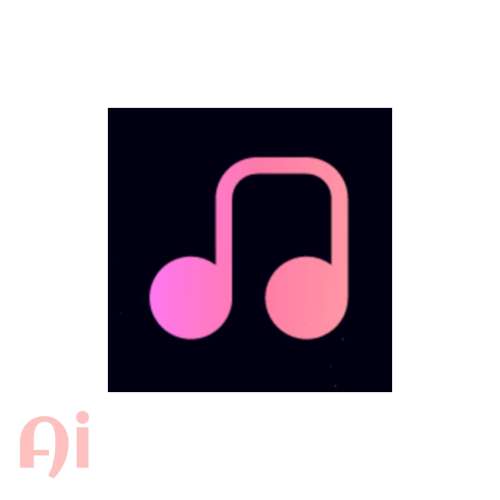
Uberduck
 ai audio generators
ai audio generators
What Is Uberduck.ai?
Imagine a tool that can clone Morgan Freeman’s voice to narrate your podcast or generate a Drake-style vocal track for your indie project—without hiring either. That’s Uberduck.ai, an AI-driven platform specializing in voice synthesis and audio generation. But beyond its flashy capabilities lies a maze of technical innovation, creative potential, and ethical questions. How does it work, and who should—or shouldn’t—use it? Let’s dissect the tool, layer by layer.
Key Features: Beyond Mimicry
Uberduck.ai isn’t just a party trick. Its core functionalities include:
- Voice Cloning: Replicate existing voices (including celebrities) or create custom ones from scratch.
- Text-to-Speech (TTS): Convert written text into spoken audio using 5,000+ preloaded voices.
- Rap Generator: Auto-generate lyrics and vocals in the style of artists like Eminem or Cardi B.
- API Access: Integrate Uberduck’s voice models into apps, games, or chatbots.
- Audio Customization: Adjust pitch, speed, and tone for nuanced outputs.
Technical Backbone: Uberduck uses Tacotron 2 (a neural TTS model) and WaveRNN (for waveform generation), enhanced with proprietary algorithms to optimize voice clarity and emotional inflection. Unlike generic TTS tools, it’s fine-tuned for entertainment and marketing, offering dramatic tonal shifts suitable for ads or audiobooks.
How to Use Uberduck.ai: A Step-by-Step Guide
- Sign Up: Create a free account (paid tiers unlock premium voices).
- Choose a Voice: Browse celebrity impersonations, fictional characters, or upload a voice sample.
- Input Content: Type text, upload a script, or use the rap generator.
- Generate & Edit: Tweak pacing, add pauses, or layer background music.
- Export: Download as MP3/WAV or share via API.
Pro Tip: Use the “Emotion” slider to add urgency or warmth to AI voices, making them less robotic.
Use Cases: Where Uberduck Shines (And Stumbles)
- Content Creation: YouTuber TechReview+ cloned their host’s voice to produce videos during a hiatus, cutting editing time by 50%.
- Marketing: A startup generated a viral ad using a cloned celebrity voice but faced backlash when audiences discovered it was AI.
- Music Production: Indie artists like Lucid Waves used Uberduck’s Tupac-style vocals for a retro hip-hop track, sparking debates about artistic integrity.
Ethical Gray Areas: While Uberduck’s terms prohibit misuse, enforcement is murky. A 2023 Vice investigation found cloned voices of politicians spreading misinformation on forums.
Comparisons: How Does Uberduck Stack Up?
- Descript vs. Uberduck: Descript excels in podcast editing with “Overdub” for voice cloning but lacks Uberduck’s celebrity library.
- Resemble.ai: Offers enterprise-grade security and ethical safeguards but at 3x the cost.
- Voicemod: Focuses on real-time voice modulation for gamers, whereas Uberduck targets creators needing high-fidelity pre-recorded audio.
Key Differentiator: Uberduck’s rap generator and pop culture-centric voices make it a niche choice for entertainment, but its legal risks deter corporate users.
Real Rating: ★★★½☆ (3.5/5)
Strengths:
- Unmatched voice variety (e.g., Darth Vader, Obama, niche memes).
- Intuitive interface; no audio engineering skills needed.
- Affordable starter tier ($10/month for 20 minutes of audio).
Weaknesses:
- Ethical risks: Celebrities like Tom Hanks have criticized unauthorized voice cloning.
- Inconsistent audio quality: Robotic artifacts in longer clips.
- Limited language support (primarily English).
Expert Insights & User Quotes
- Dr. Emily Tran, AI Ethics Researcher: “Uberduck democratizes creativity but operates in a regulatory Wild West. Users must self-police.”
- Marcus Lee, Podcast Producer: “We saved $2k/month on voice actors, but listeners noticed the synthetic tone. We had to revert.”
Who Should Use Uberduck.ai?
- Content Creators: Ideal for YouTubers, meme pages, or small studios needing quick, low-cost voiceovers.
- Musicians: Experimental artists exploring AI-collaborative tracks.
- Avoid If: You’re in regulated industries (e.g., journalism, legal) or risk-averse.
Technical Deep Dive
- Languages: English-focused; limited support for Spanish, French.
- AI Models: Tacotron 2 + WaveRNN, trained on 10,000+ hours of speech data.
- Internet Required: Yes; no offline mode.
The Future of Uberduck.ai
Per their roadmap:
- Q4 2024: Partnerships with voice actors for licensed clones.
- 2025: Multilingual expansion and “Ethical Mode” to block unauthorized voices.
Pro Tips for Advanced Users
- Layer Vocals: Mix AI-generated tracks with human voices to bypass detection.
- Post-Processing: Use tools like Audacity to reduce metallic tones.
- API Hacks: Automate social media audio posts using Zapier integrations.
FAQ
Q: Can I monetize Uberduck-generated content?
A: Technically yes, but using celebrity voices commercially risks lawsuits.
Q: Does Uberduck integrate with video editors?
A: Export audio files and import them into tools like Premiere Pro.
Q: Is there a watermark?
A: Free-tier audio includes a subtle watermark; paid plans remove it.
Final Call to Action
Experiment with Uberduck.ai’s free tier to explore AI’s creative potential—but tread carefully. As one Reddit user warns, “It’s like wielding a lightsaber: powerful, but you might lose a hand.”
Try Uberduck.ai responsibly, and share your ethical takeaways in the comments.





No comments, be the first to comment